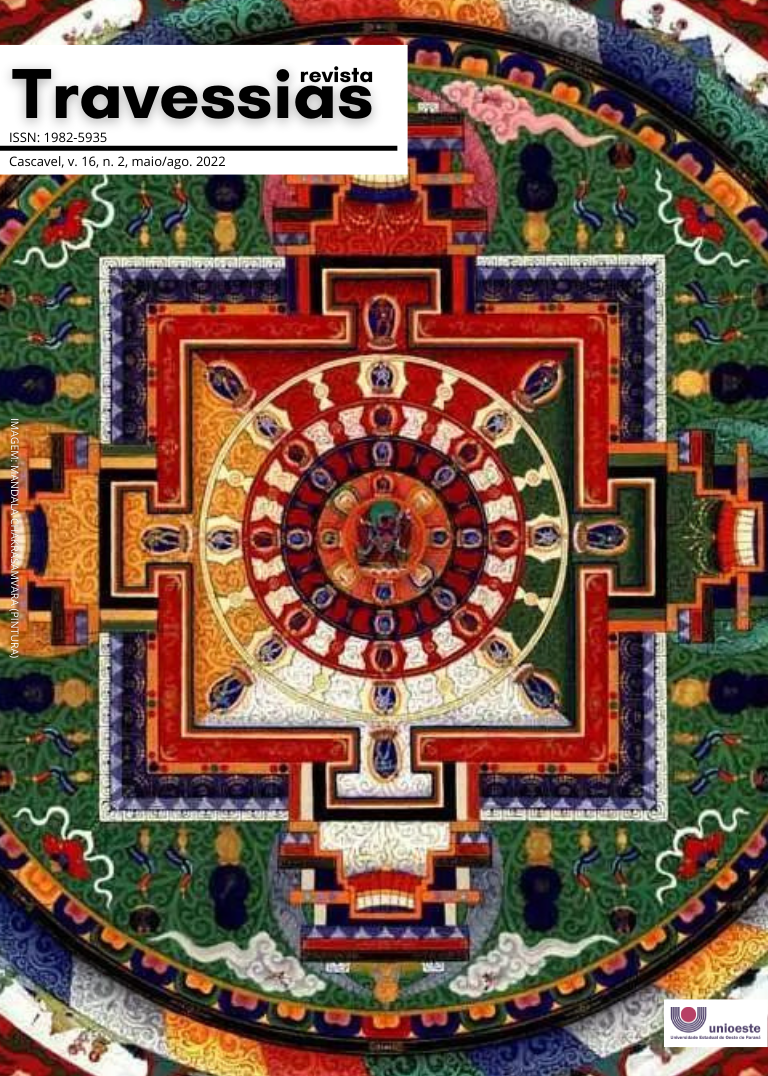El eterno femenino, by Rosario Castellanos, and Geni e o Zepelin, by Chico Buarque
convergences of Latin American male chauvinist societies
DOI:
https://doi.org/10.48075/rt.v16i2.28143Keywords:
Rosario Castellanos, Feminism, Comparative LiteratureAbstract
Chico Buarque de Holanda is a Brazilian musician, playwright, writer and actor, one of the biggest names in Brazilian popular music. After his return from Italy, he composed many works and one of them is the music Geni and the zeppelin (1979) (who composes the play Ópera do Malandro (1978)), the letter that denounces the way Brazilian society judge’s women. Rosario Castellanos is, today, one of the biggest names in Mexican literature; she was a writer of several literary genres, as well as a philosopher, thinker and researcher. Her play El eterno femenino (1975), a farce, brings a humorous criticism, but it denounces the portrait of women in Mexican society (say, Latin American). The combination of these two authors serves us as a purpose to converge in an analysis of the characteristics imposed by a patriarchal machist society, both there (Mexico) and here (Brazil). The purpose of this article is to point out convergences between the discourse of the play and the lyrics of the song, related to women's issues. In this way, we will walk through the theoretical basis of analysis of theatrical composition proposed by Anatol Rosenfeld (1982), a look at the relationship between history and fiction in Latin America proposed by Fleck (2017) and, finally, a quick reflection through discourse analysis proposed by Pêcheux (2009).
Downloads
References
ALTHUSSER, Louis. Aparelhos Ideológicos do Estado. Rio de Janeiro: Graal, 1983.
ALTHUSSER, Louis. Marx e Freud. In: EVANGELISTA, Walter José (org.). Freud e Lacan, Marx e Freud. Tradução de Walter José Evangelista. Rio de Janeiro: Graal, 1984.
BACELAR, Bruna Valença. A mulher subalterna em “Pode o subalterno falar?” de Gayatri Spivak. Neari em Revista, v. 2, n. 2, p. 21-31, 2016.
BOTTON, Viviane Bagiotto. A mulher e o eterno feminino em Rosario Castellanos. História: Questões & Debates, Curitiba, v. 67, n. 1, p. 197-229, jan./jun. 2019.
BUTLER, Judith. Problemas de Gênero. Rio de Janeiro: Civilização Brasileira, 2003.
CASTELLANOS, Rosario. El eterno feminino. México: Fondo de Cultura Económica, 1975.
EVANGELISTA, Walter José. Introdução: Althusser e a Psicanálise. In: EVANGELISTA, Walter José (org.). Freud e Lacan, Marx e Freud. Tradução de Walter José Evangelista. Rio de Janeiro: Graal, 1984.
FLECK, Gilmei Francisco. O romance contemporâneo de mediação: entre a tradição e o desconstrucionismo – releituras críticas da história pela ficção. Curitiba: CRV, 2017.
OLIVEIRA, Marcio da Silva. O lugar de Dias Gomes no teatro brasileiro: contribuições para uma modernização crítica. 2018. 403 f. Tese (Doutorado em Letras) – Universidade Estadual de Maringá – UEM, Maringá, 2018.
OLIVEIRA, Marcio da Silva. O Santo Inquérito, de Dias Gomes: recepção e resistência no moderno teatro brasileiro. In: FLECK, Gilmei Francisco; OLIVEIRA, Marcio da Silva; CERDEIRA, Phelipe de Lima (org.). Imagens da América: Representações, expressões, resistências. Curitiba: CRV, 2020. p. 251-276.
PAVIS, Patrice. Dicionário de Teatro. Tradução sob a direção de J. Guinsburg e Maria Lúcia Pereira. 3. ed. São Paulo: Perspectiva, 2008.
PÊCHEUX, Michel. Semântica e discurso: uma crítica à afirmação do óbvio. São Paulo: Editora Unicamp, 2009.
REDAÇÃO RBA. Índice de feminicídio aumenta em 2020, e mulheres negras são as principais vítimas. Rede Brasil Atual: 17/09/2020. Disponível em: https://www.redebrasilatual.com.br/cidadania/2020/09/feminicidio-2020-mulheres-negras/. Acesso em: 16 mar. 2021.
ROSENFELD, Anatol. O mito e o herói no moderno teatro brasileiro. São Paulo: Perspectiva, 1982.
ROSENFELD, Anatol. O teatro épico. São Paulo: Perspectiva, 1985.
ROSENFELD, Anatol. Brecht e o teatro épico. São Paulo: Perspectiva, 2012.
SCOTT, Joan. Gender: a useful category of historical analyses. In: SCOTT, Joan. Gender and the politics of history. New York: Columbia University Press, 1989. Tradução de Christine Rufino Dabat e Maria Betânia Ávila.
SPIVAK, Gayatri Chakravorty. Pode o subalterno falar? Belo Horizonte: Editora UFMG, 2014.
Published
How to Cite
Issue
Section
License
Copyright (c) 2022 - Authors keep the copyright and grant the journal the right of first publication, with the work simultaneously licensed under the Creative Commons Attribution License (CC-BY-NC-SA 4.0), which allows sharing the trial with acknowledgment of authorship and initial publication in this journal.

This work is licensed under a Creative Commons Attribution-NonCommercial-ShareAlike 4.0 International License.
Creative Copyright Notice
Policy for Free Access Journals
Authors who publish in this journal agree to the following terms:
1. Authors keep the copyright and grant the journal the right of first publication, with the work simultaneously licensed under the Creative Commons Attribution License, which allows sharing the trial with acknowledgment of authorship and initial publication in this journal.
2. Authors are authorized to take additional contracts separately, for non-exclusive distribution of the work version, published in this journal (eg publish in institutional repository or as a book chapter), with acknowledgment of authorship and initial publication in this journal.
3. Authors are allowed and encouraged to publish and distribute their work online (eg in institutional repositories or on their personal page) at any point before or during the editorial process, as this can generate productive changes, as well as increase both impact and citation of the published trial (See The Effect of Free Access).
Creative Commons License
This work is licensed under a Creative Commons Attribution–NonCommercial-shareaswell 4.0 International License, which allows you to share, copy, distribute, display, reproduce, completely or part of the work, since there is no commercial purpose, and authors and source are cited.



